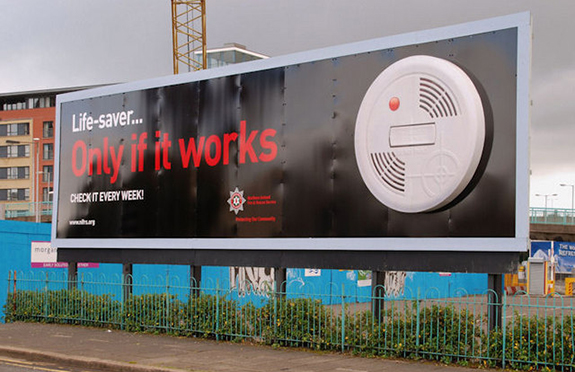Installing a home security system is just the first part of
keeping your family and home safe. Like any electrical system, a home security system should
be tested every now and then to make sure everything works as intended. The
same is also true of other alarm systems in your home. Here’s how to run a
comprehensive test of your home’s alarms.
Smoke Alarms

Although more than 92% of homes have at least one smoke
detector, about one-third of homes that experience fires have faulty or disabled smoke detectors. Many
of us have disabled a smoke alarm at some point (sometimes we don’t get things
quite right in the kitchen), but some homeowners either don’t replace the
batteries once smoke clears, grab that precious 9V battery for another
appliance or simply let the detector’s batteries run down. Since home fire
protection starts with a smoke detector, it’s vital to take steps to maintain
them.
- Test
detectors regularly – It’s recommended to test smoke detector power once a
month by pressing the test button and listening for an alarm. Every six months,
it is beneficial to test your detectors with actual smoke – you should use
aerosol smoke sprays rather than an open flame, however. - Clean
detectors – Common messes like dust or cobwebs can be cleaned with a
vacuum, but you should regularly clean detectors according to the device
instructions. If you’re suffering from regular false alarms, you probably just
need a cleaning.
Carbon Monoxide Alarm
Just like a smoke detector, your CO alarm should be tested
each month by holding the test button and listening for the beep to ensure it
is working. Replace batteries every 6 months, and your carbon monoxide alarm
should work properly for years.
Security Alarms
Testing your monitored home security system is a vital part
of keeping a safe home, but remember: it is monitored. So your first step in
testing should be alerting our central station that you’ll be testing your
system. Next, you should know the most likely causes of failure.
Individual alarm sensors on your doors and windows are the
most vulnerable (and most likely points of entry), so this is where you should
start your tests. Our systems make it easy to test each sensor and to make sure
it is communicating properly with your system.
Once your system is activated in test mode, open and close
each door and window. Walk around in front of motion sensors, ensure your home security cameras
are working and that your system is sending updates to your phone if you have home automation services.
When Should I Test?
You should check your security system at least once a month
to ensure it is working properly, but there are a number of instances that
should spark a test.
- Power surges and outages can cause shorts or
damage sensors, so test your system after any heavy storm. - Anytime an outside worker has been in your home,
you should test and reset your security system. Even if your cable guy,
exterminator, plumber or odd uncle is a trusted family friend, you should test
your system. Disabling a system component is easy from the inside, and any
stranger who has been in your house is a potential burglar. - If you’ve done any physical work on your home,
you may have broken part of your alarm or moved a sensor out of alignment. Make
sure your home handiwork hasn’t interfered with your home security.
Image credit: Albert Bridge

